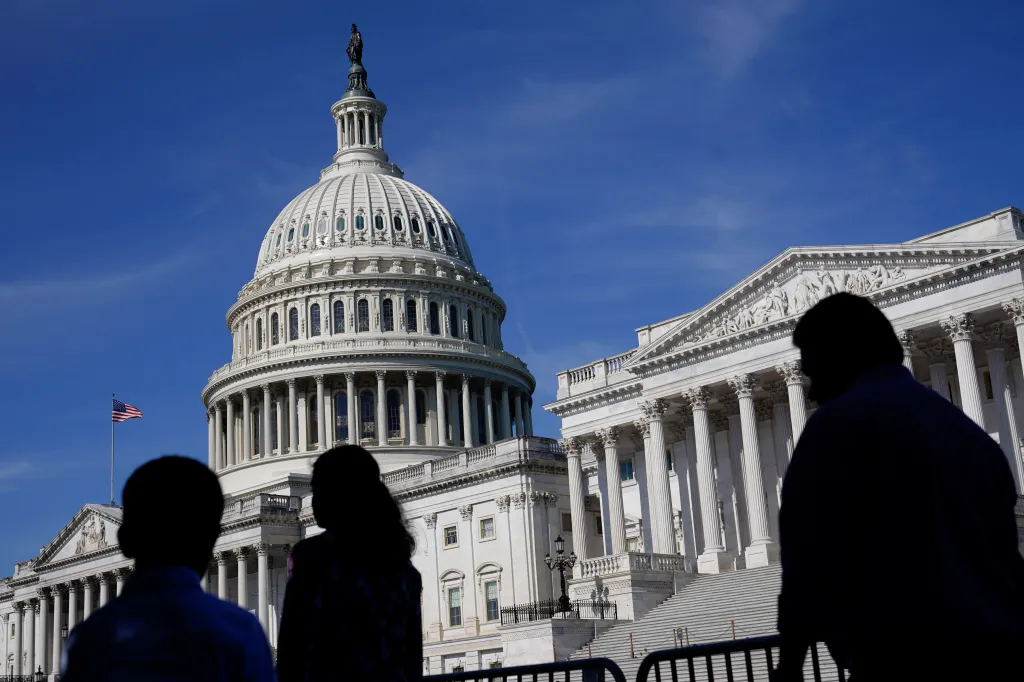Copyright Newsweek

Democrats flipped the script on a key issue that helped President Donald Trump and Republicans return to power last November. Why It Matters Democratic candidates sailed to victory in Tuesday night’s elections. In Virginia, former Representative Abigail Spanberger flipped the governorship with a 15-point victory against GOP Lieutenant Governor Winsome Earle-Sears. Democratic Representative Mikie Sherrill defeated Republican Jack Ciattarelli by about 13 points in New Jersey, and Democratic candidate Zohran Mamdani won the New York City mayoral race. Although there are differences between those candidates, an emphasis on affordability was a common thread through each of those campaigns that helped propel them to victory. That’s a contrast from last November, when Republicans used the affordability issue to defeat Democratic candidates up and down the ballot. The results underscore how the political environment has shifted in just a year—and is good news for Democrats hoping to reclaim control of the House of Representatives and the Senate next November. What to Know Voters often name the economy as among their top concerns. CNN’s exit polls of the 2024 election showed that 32 percent of Americans said it was their most important issue. Of that voter group, 81 percent supported Trump while only 18 percent backed former Vice President Kamala Harris, according to CNN exit polling. One year later, Democratic candidates’ focus on affordability played a key role in their sweep of major elections. The focus on affordability spanned ideology, as Mamdani, a socialist, as well as centrist Democrats Sherrill and Spanberger, all zeroed in on the economy during their campaigns. Spanberger focused on issues such as the Trump administration’s federal layoffs, which may have been particularly salient in the state’s Washington, D.C., suburbs that are home to many federal workers. Sherrill emphasized issues including housing and energy costs, which loomed over the New Jersey gubernatorial race. Mamdani also discussed ways to tackle New York City’s high costs of living, including housing and transportation policies. Trump’s tariffs also loomed over each of these races. Trump has argued they will benefit America in the long term by bringing back jobs, but critics have said they would lead to higher prices for Americans. The election suggests that Democrats’ economic message resonated with voters. In New Jersey, 32 percent of voters said the economy remained the most important issue. Sherrill won those voters with 65 percent of the vote, while only 35 percent backed Ciattarelli (though he held an advantage among voters who said taxes were the most important issue), according to CNN’s exit poll. Virginia’s results told a similar story. Forty-eight percent of voters said the economy was the most important issue in the state. Spanberger won those voters by a 63-37 margin. Trump successfully tapped into voters’ sentiment about being “left behind” in the 2024 election and ran a campaign people could relate to, Anne Danehy, professor at Boston University's College of Communications, told Newsweek. She pointed to his focus on the cost of eggs as an example of a “simple” message that proved to be effective for Republicans. But voters are still facing steep prices and are now questioning whether his policies are helping, giving Democrats an opening on affordability, she said. Democrats this time around did a better job of contrasting their economic plans with those of Republicans, she added. “That contrasting message. But are [voters] going to give up on Republicans? Only if Democrats come up with really concrete ideas about how they’re going to improve their lives,” she said. “It has to be a really personal message.” Stephen Farnsworth, political science professor at the University of Mary Washington, told Newsweek the shift underscores “the nature of politics.” In 2024, Republicans could attack the Biden economy, but now, Democrats can attack the Trump economy as voters are “unhappy with the status quo.” Spanberger’s campaign can be a model for Democrats moving forward, he said. “Spanberger is a good example of what Democrats can do. You stay focused on the economy. Whatever the question is, the answer relates to the problems that people have making ends meet,” he said. Harris last year was dealt a “terrible hand” but could have better connected with economically anxious voters by talking more about the minimum wage or expanding free lunch programs for students across the country, he said. “Things like that could have given her more traction,” he said. Costas Panagopoulos, political science professor at Northeastern University, told Newsweek that Democrats across the board succeeded at keeping economic concerns “front and center.” “It’s a message that voters are sending every day. They’re worried about the economy. They’re worried about prices and affordability. They’re worried about utility costs and housing affordability, and the pricing of everyday products,” he said. “These are the pocketbook issues that tend to drive voting in elections. Those things have not improved dramatically since Trump was elected in 2024, and for many voters, things have deteriorated.” If Republicans do not “course correct,” things on Election night next November could look “very similar,” he warned. What People Are Saying Stephen Farnsworth also told Newsweek: “The tide goes in and the tide goes out. Republicans benefited a year ago and Democrats benefited from it last night. The key takeaway for me from the elections on Tuesday is the value of keeping the focus on the economic conversation.” The Wall Street Journal affordability wrote on Wednesday: “President Trump rolled to victory in 2024 promising to reduce inflation and make middle-class life more affordable. The warning to Republicans in Tuesday’s election results is that Democrats are turning the tables on affordability, especially when they steer clear of leftist cultural snares.” President Donald Trump responded to the results in a post to Truth Social Tuesday night: “’TRUMP WASN’T ON THE BALLOT, AND SHUTDOWN, WERE THE TWO REASONS THAT REPUBLICANS LOST ELECTIONS TONIGHT,’ according to Pollsters.” Former Transportation Secretary Pete Buttigieg wrote to X: “New Jersey and Virginia have chosen well by electing @MikieSherrill and @SpanbergerForVA as their next governors! They are proven leaders who won by focusing on what matters most - how politics and policy can make everyday life better and more affordable.” What Happens Next Every seat in the House of Representatives, and one-third of Senate seats, are up for election next November. Tuesday night’s results renewed Democratic enthusiasm and optimism about their chances in the midterms. Affordability will remain a key issue for voters next year.



